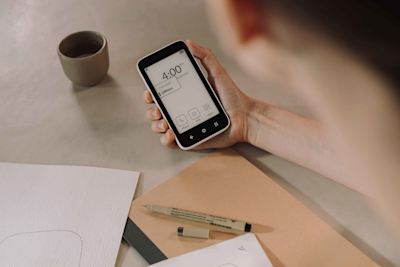
Celebrating The National Day of Unplugging
Disconnecting from technology: The National Day of Unplugging
The National Day of Unplugging is an awareness campaign which takes place from sundown to sundown, and is observed annually on the first weekend in March. This year the dates fall on March 5th thru 6th.
The initiative started in 2009 in the US in order to promote a 24hr break from technology and spend less time online and more time offline.
Although the name suggests that this day is ‘national’ and therefore only specific to one nation, it is in fact something which has become very much ‘international’.
The campaign encourages people who spend too much time online to join “the National Day of Unplugging, … and start living a different life: connect with the people in your street, neighborhood and city, have an uninterrupted meal or [read a book].”
The project, in it’s 12th year, was developed from the Sabbath Manifesto, which was intended to be used to go outside, spend time with friends and family, unplug, unwind and relax. There were ten principles put in place which are available to download (PDF) for the Sabbath Manifesto, some of which are still relevant today, so we’d like to share them with you.
Avoid technology
Connect with loved ones
Nurture your health
Get outside
Avoid commerce
Light candles
Drink wine
Eat bread
Find silence
Give back
‘Drink wine’, ‘eat bread’ and ‘light candles’ can be interpreted as ‘hydrate’, ‘eat healthily’ and ‘set up a relaxing environment’. The rest are relatively self explanatory with ‘avoid technology’ and ‘connect with loved ones’ being the key element to the entire project.
Looking after your health and spending time outdoors, not shopping so as to avoid commerce but rather giving back and spending time with those that matter most to you, sounds like a great idea! Finding silence is important too, once you’ve spent the day offline, you could contemplate how it made you feel, in silence, either together or alone. Think about all of the things you did and all of the things you could do, if you were to spend less time ‘plugged in’.
People from all over the world are finding it harder and harder to disconnect from technology so even though it started in the US, it’s definitely a concept that works on a global scale. It brings together a lot of diverse communities and helps people to connect with one another in a way that perhaps they wouldn’t do if they were using their phones.
How can you take part?
There are so many ways to take part, one of the easier ways is to sign the pledge and download the free toolkit. You could also host your own National Day of Unplugging event! The toolkit includes signs which you can print out and fill in yourself in a variety of different languages, the signs say ‘I/We unplug to …’ so you can customize your sign with the reason you have chosen to unplug. Below we’ve listed some suggestions if you need a little inspiration.
I/We unplug to be with my family.
I/We unplug to visit my friends.
I/We unplug to reconnect.
I/We unplug to go outside.
I/We unplug to love.
I/We unplug to hug one another.
I/We unplug to connect with each other.
I/We unplug to spend more time together.
The toolkit also includes the Sabbath Manifesto, printable discussion cards and playing cards, as well as instructions on how you can unplug. There are name tags too, in case you’d like to hold your own ‘unplugging’ event at work, at home or as part of your local community.
The ‘cell phone sleeping bags’ are a very nice way of getting people to put away their device, they were designed by the conceptual artist Jessica Tully who is based in San Francisco. She ‘designed this cell phone bag as a way to resist the temptation of the distracting electronic glow of our cell phones and cameras.’ (National Day of Unplugging) We really like the idea of putting your phone to sleep and taking a break from it for a while! The logo was designed by Lucie Kim.
The information below (within the heading ‘Unplugging Themes’) is taken directly from the National Day of Unplugging materials and all rights belong to their respective owners. As all of the ideas for ‘unplugging themes’ are wonderful, we wanted to share them with you.
Ways to unplug from technology
Organizing around an idea is a great way to get started. These are examples of themes that we have found successful and we hope they provide inspiration for your own unplugging gathering.
Small Gathering: Host an unplugging gathering. Analog is making a comeback. Gather your friends and host a small unplugging get-together with crafts, games, food, beverages, yoga and more. Go a step further, ask your guests to check their phones at the door (see our device check-in activity later in the kit!) and have some fun.
Get outside: Hike, bike ride, sports. Join friends or family for a hike, bike ride or a sports game. Whether it’s two friends playing tennis or a group of people checking out a nearby state/national park, the NDU is a great day to see nature first-hand.
Give back: Volunteer. Use this opportunity to inspire your community to do something good for the world. Create a special session to brainstorm what your community can do to make the world a better place—and then get out there and do it!
Play: Board games, cards, etc. Take out a board game or a deck of cards. Have a bunch of different game options for people to play (we love Settlers of Catan and Cards Against Humanity). Whatever you choose, it's great to share these unplugged moments together.
Cook: Make a meal and share it. Spend some time in the kitchen to create a special meal with family and friends, and share it together unplugged. Host a Shabbat dinner and incorporate the principles of the Sabbath Manifesto. Host a themed dinner. Share old family recipes.
Share your story: Host a story slam! Share stories of emails you wish you had never sent, the sunset you experienced sans cellphone, or tall tales of digital addiction. You can host an event and invite people to share their stories. An easy way to involve others is to ask everyone to share their “Six Word Memoir” on unplugging.
Learn: visit a museum, library or theatre. Take a trip to a museum, aquarium or zoo. Use this time as an opportunity to engage in a new subject, ask a scholar in your community (yoga instructor, spiritual leader, or an artist...) to share their thoughts on unplugging.
If you’re interested in limiting the amount of time you spend online in general, you might like our blog posts which relate to digital minimalism. We’ve listed them for you below. This particular topic is gaining popularity, largely thanks to the efforts of groups such as the Digital Wellness Collective and books such as Digital Minimalism by Cal Newport.
If you’re interested in learning more about the National Day of Unplugging, visit their website at nationaldayofunplugging.com! Have you signed the pledge? What do you think of these kinds of projects? Is there anything you’d like to add, have we missed anything?
Follow Mudita on social media and join our Unplugging Day Challenge! You can find us on Facebook, Twitter and Instagram, let’s connect!
We’d love to know what you think. If you’re interested in sharing your experiences with us let us know in the comments below.
Related stories

Why Mudita Kompakt is the digital detox we need right now
Mudita Kompakt is a minimalist phone designed for digital detox—no feeds, no tracking, just essential tools to help you reclaim focus, calm, and privacy.

Why Mindful Tech Use Is the Key to Creating Moments That Matter
Escape digital distractions & rediscover presence. Learn how mindful tech use can help you connect deeper, reduce stress & fully experience life beyond screens.

10 Simple Steps to Sleep Better and Improve Sleep Quality
Struggling with sleep? Discover 10 simple, science-backed tips to improve sleep quality, build better habits, and wake up refreshed every morning.
If you'd like to receive the best stories from our blog, keep up to date with our progress and get notified about our product releases and special discounts.